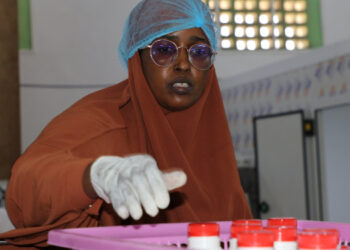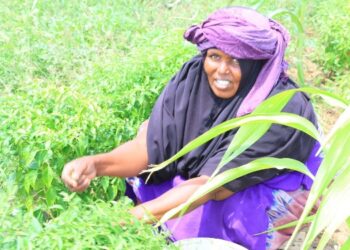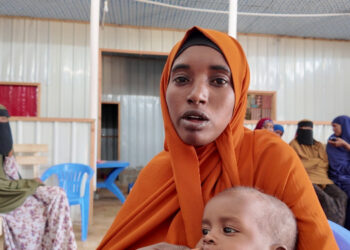Yarow Sheikh Abdi, 56, is looking forward to reviving his own small farming business after three years of earning a pittance from labouring in the fields of the better off farmers in his area.
Yarow’s family in Qaam-Qaam, 13 km from Kismayo, is among the families who received a generator from the regional Jubaland state government that is enabling him to pipe water from the river Juba to irrigate his fields.
He hopes to plant his 15 hectare farm and be able to water the crops with ease and resume sales of his produce in the markets of Kismayo. His family is sharing access to the generator with four other families, including his brother’s family of five, who returned from Dadaab refugee camps in Kenya a month ago.
Very low and unpredictable rainfall in this part of Lower Juba region have dramatically reduced the level of water in the river and led to successive crop failure.
Jubaland’s Ministry of Agriculture identified the most vulnerable families in Bulo-Gadud and Goobweyne, whose livelihoods were threatened by the failure of the rains. They received a total of 112 generators and pipes for shared use, distributed under a programme funded by the NGO, American Refugee Committee.
Mahad Muhyadin, deputy agriculture minister, said rainfall patterns had changed in the past few years and the poorest could no longer rely on rainfall for farming.
Mohamed Ibrahim Aadan, 60, a farmer in Goobweyne 15 km from Kismayo, told Radio Ergo the generator would help him pipe water from the river, which is 400 metres from his farm.
Mohamed shares the generator with 15 other families. He is busy watering his fields of tomatoes, pumpkins and watermelons. He had been cultivating only five hectares of land due to the lack of water, but with the irrigation he will plan on expanding to use his entire 30 hectare farm. He has a large family of 30 people, including grandchildren, to take care off with the produce from the farm.










